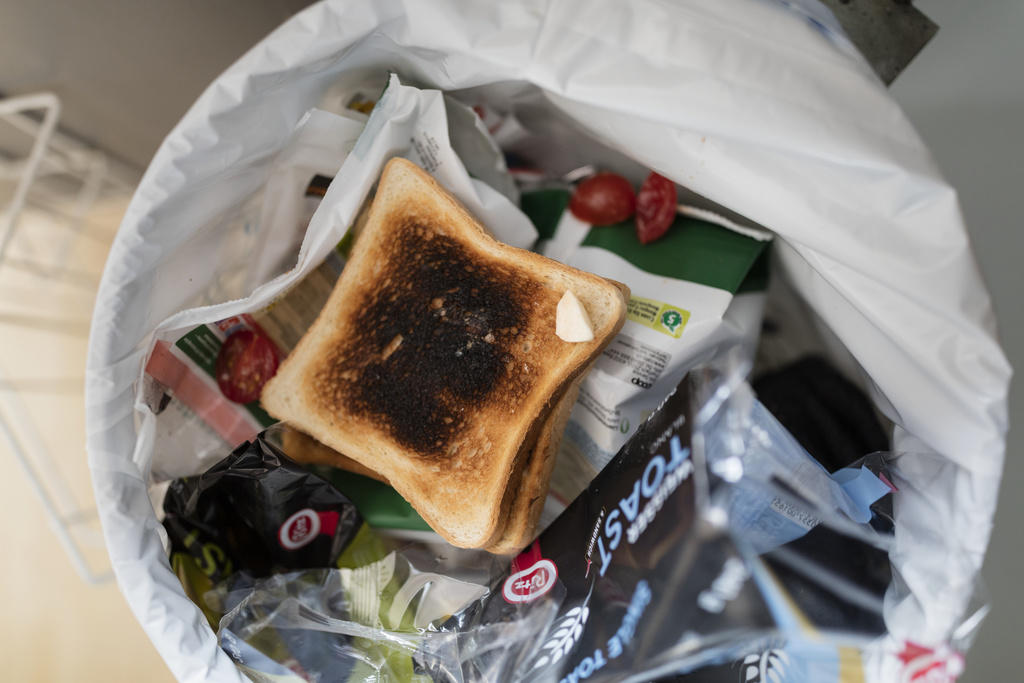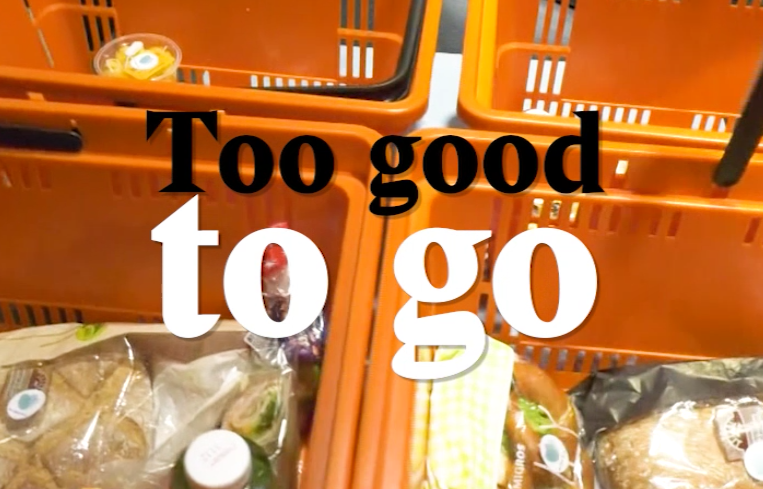
Households are the biggest sources of Swiss food waste

A total of 2.6 million tonnes – that’s 190 kilos per person – of food waste is produced in Switzerland each year, the federal environment office has reported. Two-thirds of this is avoidable.
In a series of reports analysing the role played by different sectors in producing and dealing with food waste, the Federal Office for the Environment (FOEN) said on Monday that 1.7 million tonnes of avoidable (i.e. edible) waste is produced each year in the country.
Private households and consumers are the biggest culprits, accounting for 38% of the waste, FOEN said (see graphic). Just under half of the one million tonnes dumped by Swiss homes ends up burned along with other general waste; the rest is recycled, composted, or reused as animal feed.
A few factors feed this problem: a lack of awareness on the part of consumers as well as a need for more and better separating systems and recycling infrastructures in local municipalities.
Around half of all food waste produced by households is unnecessary, FOEN wrote.

The food industry accounts for almost the same amount of waste as private households – only a quarter of which is unavoidable, such as inedible components or residues with no demand, like vegetable peels or bones.
However, the industry is also more used to disposing of the waste in a productive way: the bulk of it, around 75%, is fed to livestock, thus remaining in the food production cycle. Around 20% is converted to energy (biogas) or recycled as compost. A minute amount is donated.
Cutting waste in half
Other sectors analysed by the studies were agriculture (9% of Swiss food waste, but 90% of which could be avoided), catering (which runs up big costs for itself each year in getting rid of waste) and retail (which does best at donating waste to the needy, though still only donates 5% of its total).
“Food waste at the end of the value chain (households, catering industry, retail trade) has a higher environmental impact than food waste incurred at the beginning,” the office also said.
The studies come in the framework of Swiss efforts to cut its food waste in half by 2030, in line with its commitment to the UN’s Sustainable Development Goals. Uneaten food leads to extra CO2 emissions, lost biodiversity, and strain on soil and water sources.

More
Fighting food waste

In compliance with the JTI standards
More: SWI swissinfo.ch certified by the Journalism Trust Initiative






























You can find an overview of ongoing debates with our journalists here . Please join us!
If you want to start a conversation about a topic raised in this article or want to report factual errors, email us at english@swissinfo.ch.